10 Effective Home Remedies To Treat Eye Infections
Depending on the severity of the condition, some at-home treatments may be helpful.
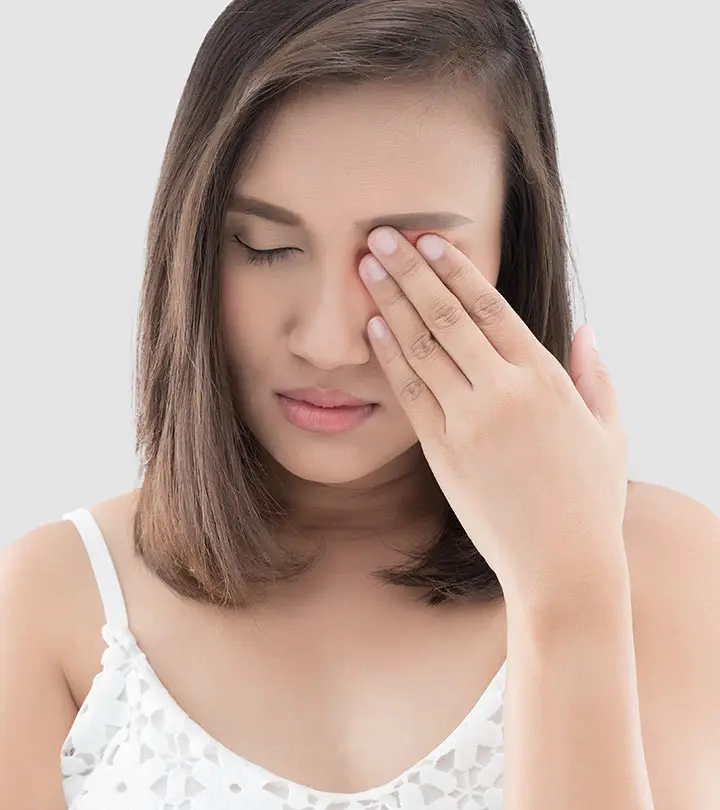
Image: Shutterstock
If your eyes keep itching and drying up constantly, you are most likely suffering from an eye infection. Eye infections can be uncomfortable and painful and lead to serious health complications if left untreated. Fortunately, there are home remedies for eye infections you can try along with traditional medicine to get rid of them. Read on to know more!

In This Article
What Is An Eye Infection?
An eye infection is usually accompanied by redness and an itching sensation in your eyes. It can affect the following parts of your eyes:
- Cornea
- Eyelids
- Conjunctiva (the area that covers the inner and outer layers of your eyes)
Common eye infections include:
- Blepharitis – An inflamed and crusted eyelid.
- Dry Eyes – The tear ducts are unable to provide enough lubrication to your eyes, causing redness and irritation.
- Keratitis – The cornea is inflamed due to fungal or bacterial infection.
- Pink Eye – Also known as conjunctivitis or madras eye, it occurs due to viral infection, irritation, or inflammation of the conjunctiva, resulting in redness and itching of the eyes accompanied by tears.
- Stye – A painful red lump near the edge of the eyelid that looks like a boil or a pimple.
Other forms of eye infections include chalazion, trachoma, uveitis, endophthalmitis, dacryocystitis, orbital cellulitis, and eye herpes caused by the herpes simplex virus.
An eye infection can affect any or both of your eyes. One of the premier Cataract & Refractive Surgeons, Dr. Michael J. Shumski, MD, MSE, says, “ One of the most common infections that can cause permanent vision damage and blindness are contact lens-related infections. Contact lenses are a risk factor for many different types of bacteria. These are some of the most common vision-threatening and blinding infections in otherwise healthy young adults.”
The study revealed that improper cleaning, irregular contact lens replacement, and other behaviors associated with contact lens hygiene and care can lead to serious eye infections. In the survey, 99% of respondents reported at least 1 contact lens hygiene behavior previously linked to an increased risk of eye infection.
There are always signs or symptoms to determine if it is an eye infection. Scroll down for more information.
Key Takeaways
- Common eye infections are blepharitis, keratitis, dry eyes, pink eye, and styes.
- Home remedies for eye infections include essential oils, green tea bags, turmeric, salt water, and cold compress.
- The ricinoleic acid in castor oil reduces swelling and lubricates the eyes to reduce irritation.
- Antimicrobial and anti-inflammatory properties of honey help treat eye infections.
Symptoms Of An Eye Infection
While the symptoms of an eye infection can vary, they all affect how your eye feels and looks. Here’s what you might notice in case of eye infection:
- What You Experience:
- Pain or discomfort
- Itchy eyes
- Sensation of something in your eye
- Eye pain in bright light (light sensitivity)
- Burning sensation in or around eyes
- Painful lump near the eyelashes or under the eyelid
- Tender eyelid when touched
- Excessive tearing
- Irritation in your eyes
How Your Eyes Look:
- Yellow, green, or clear discharge from one or both eyes
- Pinkish tint in the white area of the eyes
- Red or purple swollen eyelids
- Crusty lashes and lids, especially in the morning
If you are dealing with an eye infection, you may be wondering how to cure an eye infection in 24 hours. Though medication is important, certain home remedies can ease the symptoms and help manage the infection. Make sure you discuss these remedies with your doctor.
Home Remedies For Eye Infections
1. Colostrum (Breast Milk)
Newborns can develop eye infections. Breast milk can effectively manage the symptoms of neonatal eye infections, such as conjunctivitis (1). A study involved 300 premature babies to test if colostrum could prevent eye infections. Results showed colostrum had significant preventive effects, suggesting it is a safe, cost-free alternative to antibiotics for neonatal conjunctivitis. Colostrum contains high levels of antibodies that can help fight infections and may help alleviate conjunctivitis in newborn babies. Therefore, breast milk can be your answer to conjunctivitis. However, while breast milk causes no harm, still there is no research-based evidence that breast milk can treat pink eye or conjunctivitis.
You Will Need
A few drops of breast milk
What You Have To Do
- Pour a drop or two of colostrum in the eyes of the infant with a dropper.
- Wash the eyes in 5 minutes.
How Often You Should Do This
Repeat 2 times daily.
 Trivia
Trivia2. Essential Oils

Essential oils of tea tree, peppermint, and rosemary possess antimicrobial properties (2). Hence, they may help combat bacterial and fungal infections and prevent them. However, certain oils can be harmful to your eyes as well. Therefore, do not use essential oils directly on or near your eyes without proper dilution and guidance from a healthcare professional.
You Will Need
- A few drops of tea tree oil or rosemary oil
- 1 liter of hot water
- A towel
What You Have To Do
- Heat a large bowl of water and add 3-4 drops of the essential oil to it.
- Cover yourself with a towel and bend over the bowl.
- Let your skin absorb the steam for 5-6 minutes.
How Often You Should Do This
Do this 2 times daily.
Caution: Do not apply essential oils (diluted or otherwise) around the eyes as they may cause irritation and a burning sensation.
3. Green Tea Bags
Green tea extract is rich in bioactive compounds that possess anti-inflammatory properties
(3). Using green tea bags may soothe your eyes and reduce the swelling, but there is no scientific evidence to prove that they can treat eye infections. Hence, exercise caution. However, it is a safe solution to use for dry eyes. A study tested green tea extract for treating dry eye in 60 patients aged 30-70. After one month, patients using green tea extract showed significant improvement in symptoms and tear quality without side effects (4). Green tea extract was found to be a safe and effective treatment for mild to moderate cases.
You Will Need
2 green tea bags
What You Have To Do
- Take two used green tea bags.
- Refrigerate them for a while and place them on your eyes for 15-20 minutes.
- Remove them and wash your eyes.
How Often You Should Do This
You can do this 2 times daily to reduce the swelling and pain.
 Quick Tip
Quick Tip4. Honey

Honey has been used to treat eye infections like blepharitis, keratitis, and keratoconjunctivitis (5). It is one of the best home remedies for the madras eye. As honey has anti-inflammatory and antimicrobial properties, it may help alleviate eye infections.
You Will Need
- 1 cup of water
- 2-3 teaspoons of honey
- A sterilized dropper
What You Have To Do
- Boil a cup of water and add a few drops of honey to it.
- Stir well and allow it to cool down.
- Use a sterilized dropper to put a drop in each eye.
- Wash with water after 5 minutes.
How Often You Should Do This
Do this 2-3 times a day.
Megan Stevens, a blogger, shared her experience of using honey for pink eye in her blog. She said, “It stings a lot. I dab the tears with a clean tissue. I repeat several times the first day, and that’s it. The condition is gone in one day (i).”
5. Turmeric
Curcumin is the major bioactive compound in turmeric. Its anti-inflammatory and antimicrobial properties can help alleviate the symptoms associated with eye infections (6). It is commonly featured in several madras eye home remedies. Though more randomized clinical trials are needed to establish its therapeutic properties, initial studies have shown promising results. Hence, turmeric can be a good home remedy for eye infections.
You Will Need
- 1 teaspoon of turmeric powder
- 1 cup of warm water
What You Have To Do
- Boil a cup of water and add a teaspoon of turmeric to it.
- Allow it to cool for a while.
- Soak a sterile washcloth in this solution.
- Use this as a warm compress and wash your eyes after this process.
How Often You Should Do This
Do this at least once a day.
6. Lemon Juice

Sometimes, allergic reactions to substances or a change in the weather can cause eye infections to flare up. Due to its anti-inflammatory and antioxidant properties, drinking lemon juice can help fight eye infections and their symptoms (7). However, as there is not enough research to back this up, make sure you discuss this remedy with your doctor.
You Will Need
- 1 glass of warm water
- ½ a ripe lemon
What You Have To Do
- Extract the juice from the lemon.
- Add this to a glass of warm water and mix well.
- Drink this up.
How Often You Should Do This
Drink this juice at least once daily.
7. Saline Water
Saline is recommended to treat certain types of eye infections (8). Some believe that this could be attributed to the antiseptic properties of saline. However, there is no research to support this statement. As saline water is similar to teardrops, some state that it can help alleviate eye infections. Therefore, always consult your doctor before you apply saline water for eye infections.
You Will Need
- ½ liter of boiled water
- 1-2 teaspoons of salt
What You Have To Do
- Mix the salt with the boiled water.
- Rinse your eyes thoroughly with this solution.
How Often You Should Do This
You can wash your eyes with this mild solution several times a day.
8. Vitamin Supplements

Due to a fast-paced lifestyle, your body can become deficient in essential vitamins and minerals. This, in turn, can make you prone to eye infections. Research shows that vitamins A, C, and E can be beneficial for maintaining good ocular health (9).
These nutrients can help prevent any infection or damage to your eyes. You can consume foods rich in these nutrients. Additionally, you can also consume foods like leafy vegetables, citrus fruits, seafood, nuts, and cheese.
Note: Please make sure that you consume supplements after consulting your doctor/health care provider.
9. Castor Oil
In animal studies, the ricinoleic acid in castor oil, which has anti-inflammatory properties, was found to reduce swelling of the eyes (10). The oil can also lubricate your eyes, which may help in alleviating any irritation. It can improve tear stability, prevent tear evaporation, and provide lubrication (11), (12).
You Will Need
- Castor oil (100% organic, cold-pressed, hexane-free)
- Sterile washcloth
- Water
What You Have To Do
- Apply castor oil around your eyes.
- Soak the washcloth in warm water and place it over your eyelids.
- Leave it on for about 10 minutes.
How Often You Should Do This
Do this 2 times daily.
10. Cold Compress
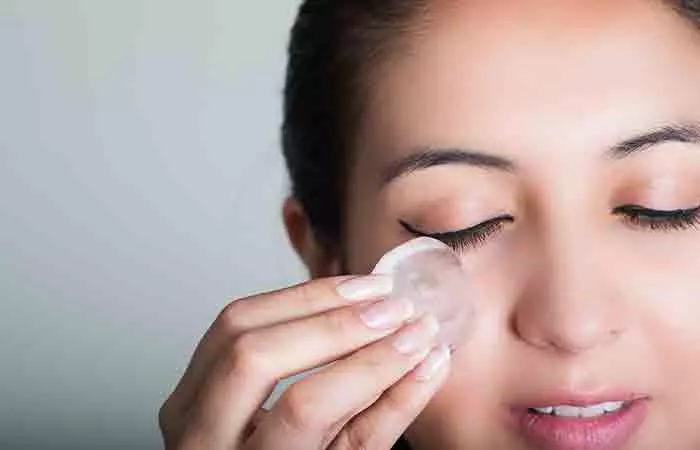
Using a cold compress can help alleviate the inflammation and discomfort caused by an eye infection (13). However, it will not treat the infection.
You Will Need
A cold compress
What You Have To Do
- Place a cold compress on the affected eye for about 2-3 minutes.
- Do this two more times.
How Often You Should Do This
Repeat this procedure 2 times daily until the swelling subsides.
These home remedies can go a long way in helping you deal with the infection. However, remember that using home remedies for eye infections might cause irritation, allergic reactions, or worsen the infection. Some ingredients may not be sterile, leading to further contamination. To avoid these issues, never apply unverified substances directly to your eyes, and always maintain proper hygiene. Consult a doctor for safe and effective treatments before trying any home remedy.
As you know, it is always better to prevent an infection in the first place.
Here are a few prevention tips you can follow:
- Refrain from touching/rubbing your eyes with unclean hands.
- Do not share your cosmetics, towels, and handkerchiefs with others.
- Do not wear contacts overnight.
- Keep your contact lens clean and replace them once every three months.
- Remove your eye makeup before bed.
- Do not share your spectacles with others.
- While drying, protect your eyes from dust and pollution.
If your eye infection does not improve even after following the home remedies mentioned above, it is best to visit a doctor for diagnosis. Learn below what to expect from a diagnosis session.
Diagnosis Of An Eye Infection
If you experience symptoms like severe eye pain, redness, swelling, blurred vision, or discharge that doesn’t improve, it is important to go for a professional medical evaluation. These signs could indicate a more serious infection or condition that requires proper treatment. Relying on home remedies in such cases can delay necessary care and lead to complications. Always consult a healthcare professional if symptoms persist or worsen to ensure appropriate treatment and avoid further damage.
Your doctor may ask you about your symptoms and medical history to diagnose an eye infection. Then, they usually examine the eyes and vision. If the infection appears severe, they may also perform a swab test. For this test, the discharge from your eye or a tissue sample is usually collected and sent to a lab for testing. Depending on the results, they may prescribe you with eye drops, medication, or other therapies customized to your specific condition. Take a look at some medical treatment options in the following section.
Treatment Options For Eye Infections
The treatment for eye infections usually depends on their causes. It might include (8):
- Antibiotics like liquid solutions and topical ointments for bacterial infections
- Topical antihistamines for allergic infections
- Artificial tear drops to soothe dry eyes
- Antiviral medications for viral infections
Your doctor will also ask you to maintain good hygiene habits, such as washing hands frequently and avoiding touching the eyes, to prevent further irritation and spread of the infection.
Infographics: Home Remedies To Treat Eye Infections
Eye infections are a relatively common condition. Fortunately, you can soothe the symptoms associated with eye infections with simple home remedies. The infographic below includes some easy-to-follow home remedies to provide fast relief. Take a look!

Illustration: StyleCraze Design Team
An eye infection is often the cause of red, dry, or teary eyes. The cornea, eyelids, or the conjunctiva are the parts of the eyes that are most prone to infections like blepharitis, keratitis, conjunctivitis, etc. While some of these infections require medical attention depending on their severity, you may apply some effective home remedies to manage the symptoms and facilitate recovery. For instance, breast milk with colostrum is considered to be effective in treating eye infections in babies. Essential oils like tea tree and rosemary, green tea bags, honey, lemon juice, saline water, and castor oil are some other natural ingredients that can help treat eye infections. However, you may also read about how to get rid of pink eye to gain a comprehensive understanding of it.
Frequently Asked Questions
What causes an eye infection?
Eye infections can be caused by various microbes or bacteria that come in contact with your eyes or the area surrounding them.
How do I know if my eye is infected?
Different types of infections have different symptoms. But the most common sign of eye infection is the redness of the eyes and the presence of a yellowish discharge that can crust over your eyes.
How to treat eye infection in 24 hours?
Most eye infections take a few days to weeks to cure completely. However, if you are seeking quick recovery, consult a doctor who will prescribe the appropriate medication for your condition.
How long does an eye infection last?
Typically, an eye infection can last anywhere from two days to a week. In severe cases, it can last for a few weeks to a month.
How does an eye infection spread?
Most often, an eye infection spreads by hand-to-eye contact. The infection-causing bacteria or microbes on your hands can transfer the infection to your eyes.
Can I use apple cider vinegar for treating eye infection?
Apple cider vinegar is acidic. It contains acetic acid, which may irritate and damage the eyes and the cornea. There is no scientific research to prove that ACV helps in treating eye infection. Hence, it is important to exercise caution. Do not use undiluted ACV. Also, consult your doctor before trying this remedy.
Learn about fungal eye infections from an expert doctor. Educate yourself on the types, how to recognize them, and how to treat them. Get the facts and stay informed by watching the video below now!
Personal Experience: Source
StyleCraze's articles are interwoven with authentic personal narratives that provide depth and resonance to our content. Below are the sources of the personal accounts referenced in this article.
(i) Honey for Pinkeye (Conjunctivitis) — The best home remedyhttps://eatbeautiful.net/how-use-honey-treat-pinkeye/
References
Articles on StyleCraze are backed by verified information from peer-reviewed and academic research papers, reputed organizations, research institutions, and medical associations to ensure accuracy and relevance. Read our editorial policy to learn more.
- Evaluation of preventive effects of colostrum against neonatal conjunctivitis: A randomized clinical trial, Journal of Education and Health Promotion, US National Library of Medicine, National Institutes of Health.
https://www.ncbi.nlm.nih.gov/pmc/articles/PMC4114003/ - Essential oils in ocular pathology: an experimental study. Journal of Infection in Developing Countries, US National Library of Medicine, National Institutes of Health.
https://pubmed.ncbi.nlm.nih.gov/26142676/ - Green Tea Extract Treatment Alleviates Ocular Inflammation in a Rat Model of Endotoxin-Induced Uveitis, PLoS One, US National Library of Medicine, National Institutes of Health.
https://www.ncbi.nlm.nih.gov/pmc/articles/PMC4122397/ - Efficacy of Green Tea Extract for Treatment of Dry Eye and Meibomian Gland Dysfunction; A Double-blind Randomized Controlled Clinical Trial Study
https://pubmed.ncbi.nlm.nih.gov/28384900/ - A Double Blind Clinical Trial on the Efficacy of Honey Drop in Vernal Keratoconjunctivitis, Evidence-Based Complementary and Alternative Medicine, US National Library of Medicine, National Institutes of Health.
https://www.ncbi.nlm.nih.gov/pmc/articles/PMC3953621/ - Curcumin, A Potential Therapeutic Candidate for Anterior Segment Eye Diseases: A Review, Frontiers in Pharmacology, US National Library of Medicine, National Institutes of Health.
https://www.ncbi.nlm.nih.gov/pmc/articles/PMC5306202/ - Alleviation and prevention of severe allergic rhinitis and conjunctivitis following long-term lemon juice use: a case report, Cases Journal, US National Library of Medicine, National Institutes of Health.
https://www.ncbi.nlm.nih.gov/pmc/articles/PMC2769484/ - Common eye infections, Australian Prescriber, US National Library of Medicine, National Institutes of Health.
https://www.ncbi.nlm.nih.gov/pmc/articles/PMC6003010/ - Nutrients for the aging eye, Clinical Interventions in Aging, US National Library of Medicine, National Institutes of Health.
https://www.ncbi.nlm.nih.gov/pmc/articles/PMC3693724/ - Effect of ricinoleic acid in acute and subchronic experimental models of inflammation. Mediators of Inflammation, US National Library of Medicine, National Institutes of Health.
https://www.ncbi.nlm.nih.gov/pmc/articles/PMC1781768/ - Low-concentration homogenized castor oil eye drops for noninflamed obstructive meibomian gland dysfunction. US National Library of Medicine, National Institutes of Health.
https://pubmed.ncbi.nlm.nih.gov/12414410/ - Effect of castor oil emulsion eyedrops on tear film composition and stability. Contact Lens & Anterior Eye: The Journal of the British Contact Lens Association, US National Library of Medicine, National Institutes of Health.
https://pubmed.ncbi.nlm.nih.gov/19963428/ - Conjunctivitis: Diagnosis and Management, Community Eye Health Journal, US National Library of Medicine, National Institutes of Health.
https://www.ncbi.nlm.nih.gov/pmc/articles/PMC1706007/
Read full bio of Dr. Zeel Gandhi
- Dr. Michael J. Shumski, MD, MSE, is one of the best cataract and refractive surgeons in USA with 13 years of experience in cataract and laser vision surgery. He has a background in biomedical engineering from Johns Hopkins University and is a sought-after industry collaborator and consultant on the newest generation of lasers and lens implant technologies.
 Dr. Michael J. Shumski, MD, MSE, is one of the best cataract and refractive surgeons in USA with 13 years of experience in cataract and laser vision surgery. He has a background in biomedical engineering from Johns Hopkins University and is a sought-after industry collaborator and consultant on the newest generation of lasers and lens implant technologies.
Dr. Michael J. Shumski, MD, MSE, is one of the best cataract and refractive surgeons in USA with 13 years of experience in cataract and laser vision surgery. He has a background in biomedical engineering from Johns Hopkins University and is a sought-after industry collaborator and consultant on the newest generation of lasers and lens implant technologies.
Read full bio of Shaheen Naser
Read full bio of Arshiya Syeda
Read full bio of Dipti Sharma








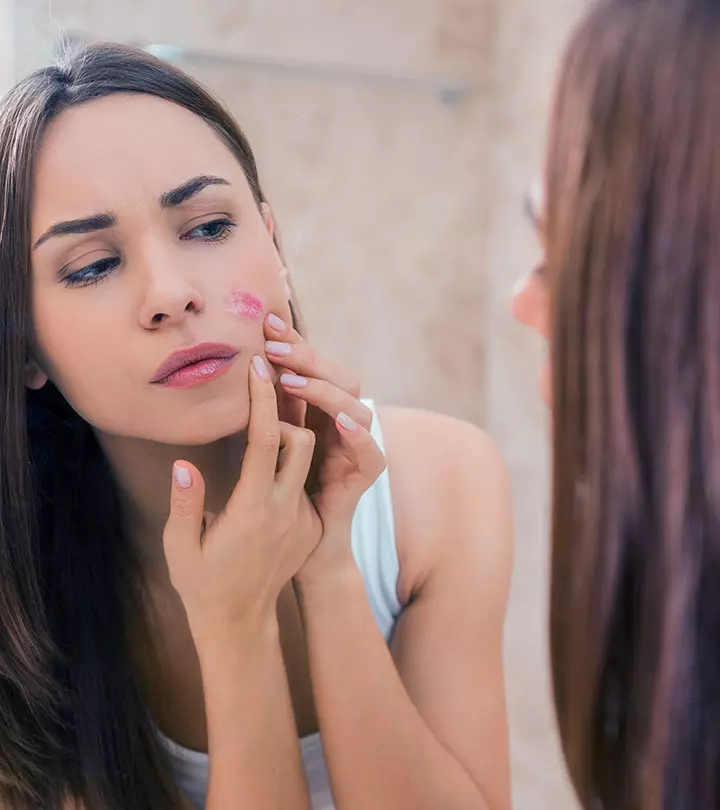
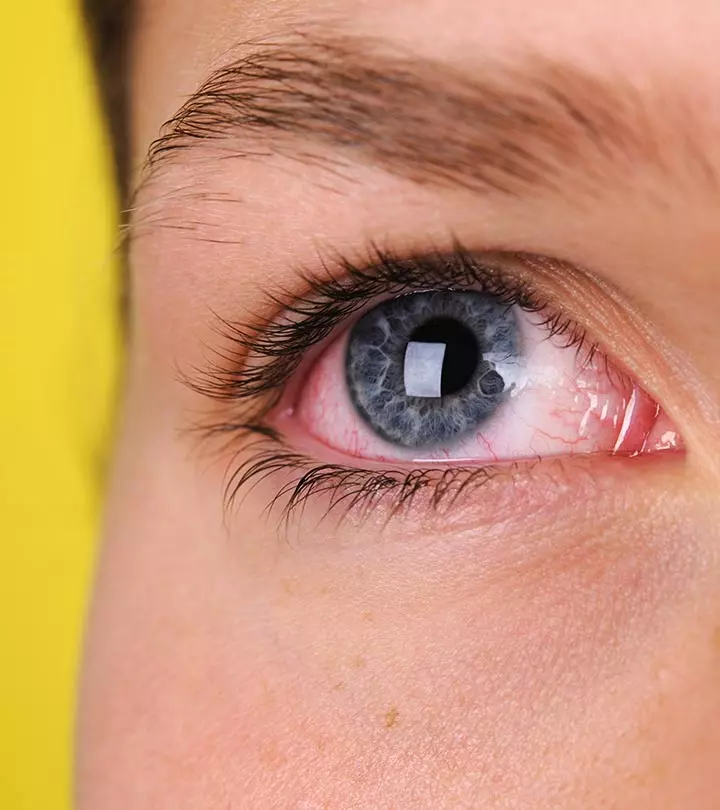




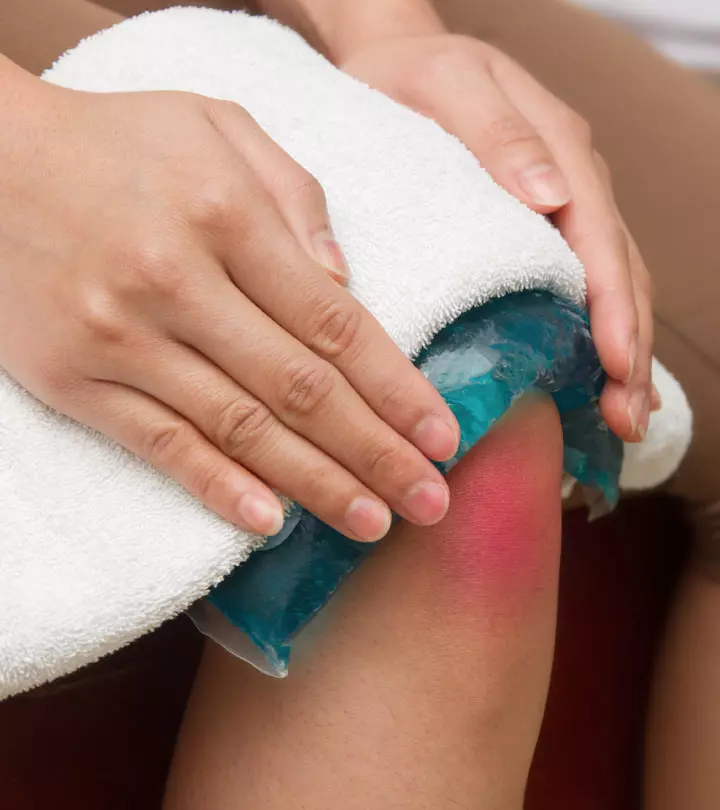
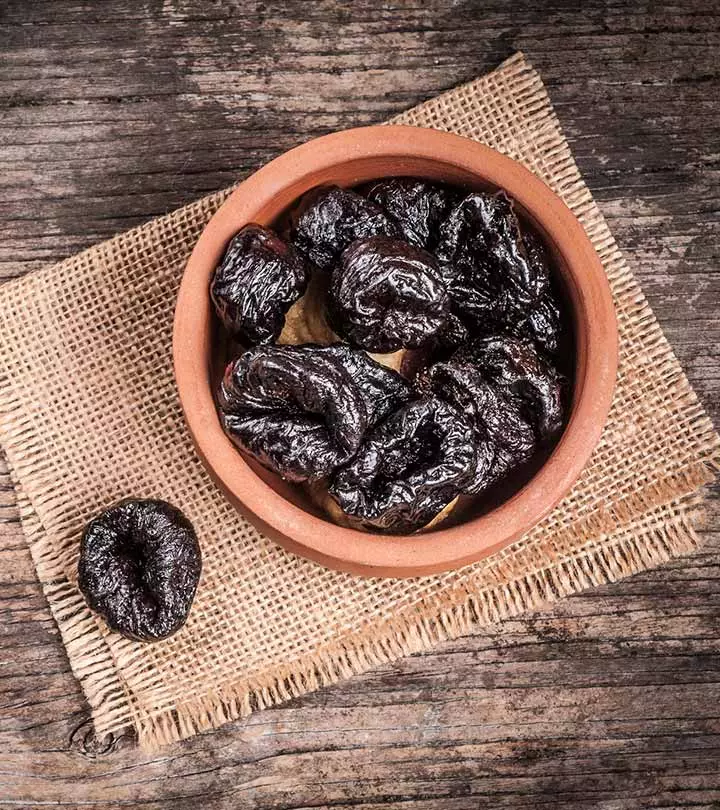

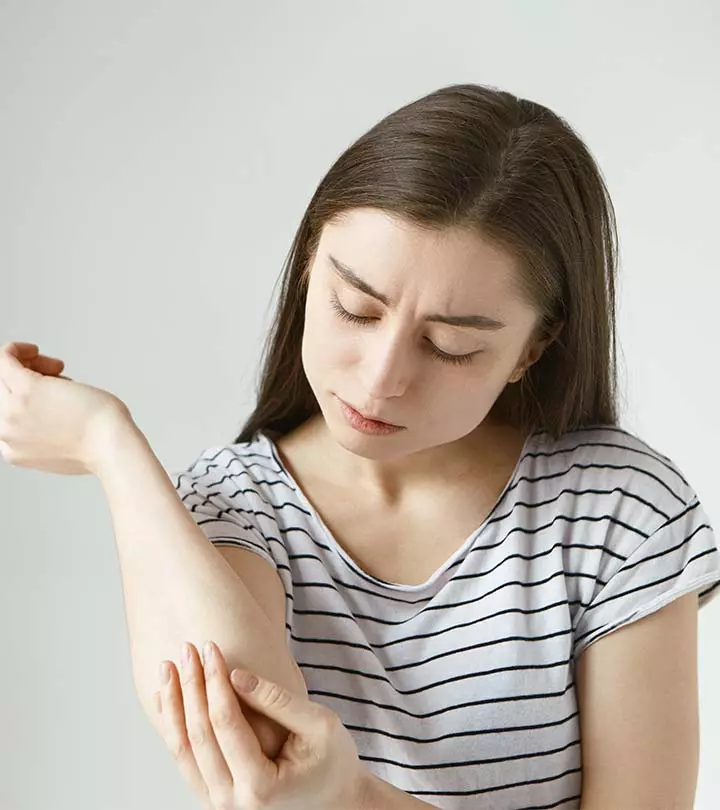



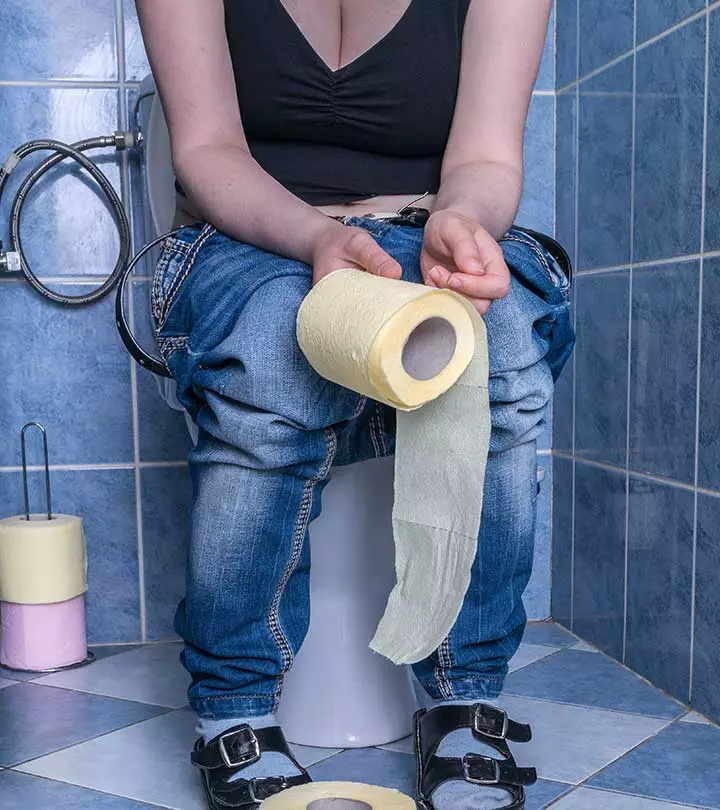
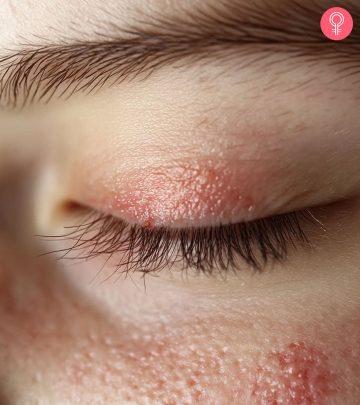
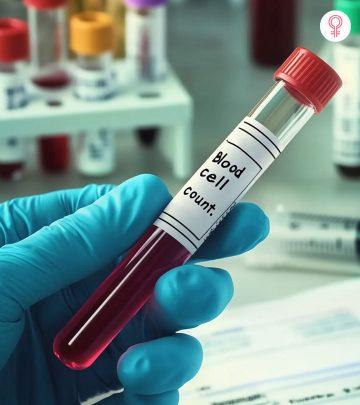


Community Experiences
Join the conversation and become a part of our empowering community! Share your stories, experiences, and insights to connect with other beauty, lifestyle, and health enthusiasts.